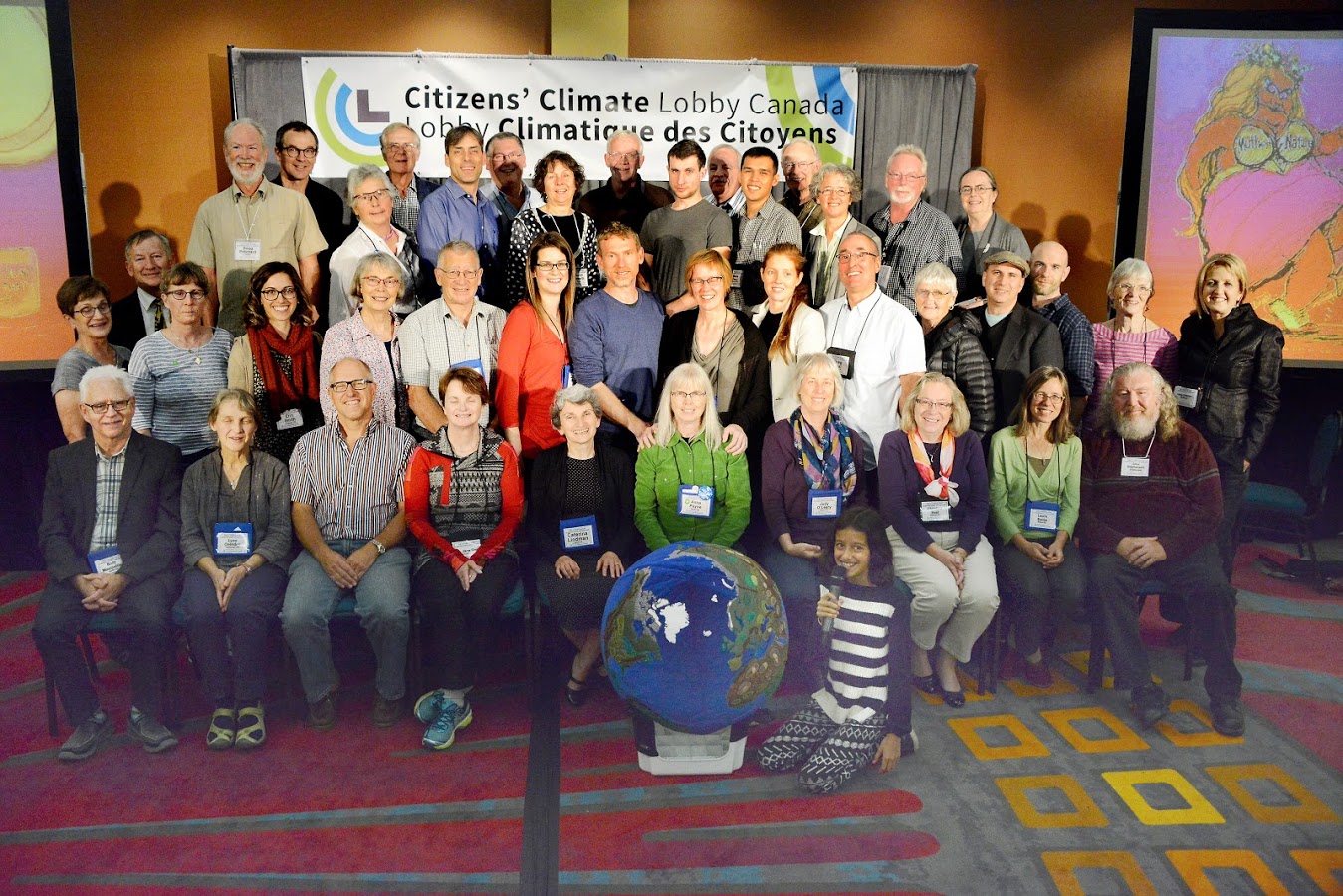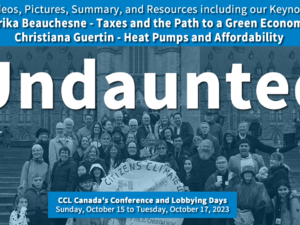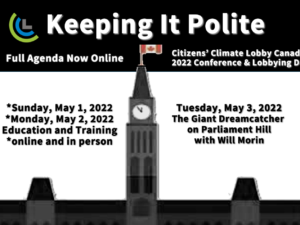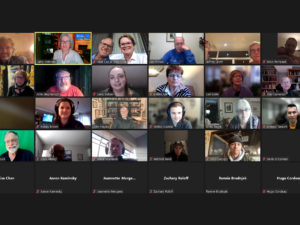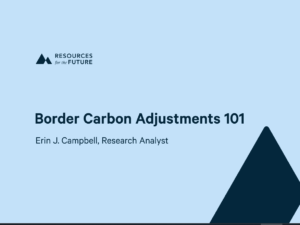FOR IMMEDIATE RELEASE: November 2, 2017 Sudbury, ON: From October 21 to October 24, CCL Canada held their fourth annual conference and lobbying days. “It was four days full of firsts and mosts,” said Cathy Orlando, the National Director of CCL Canada. “We had the most number of face-to-face meetings: 44 in one lobbying blitz,” she said. They had 49 meetings in all. Fifty-one CCL volunteers lobbied in those meetings, and in total, 65 people attended the conference. “It was the first time we had a constituent from a Canadian territory lobby with us,” Orlando said. That citizen lobbyist, Michael, joined in from the Territory of Nunavut in Canada’s Arctic. “It was also the first time ever where all three major political parties had MPs at one of our events, which was the breakfast with the Standing Committee on Natural Resources.” Prior to lobbying, citizens from across Canada spent two days deepening their understanding about climate change with speakers like Erin Flanagan from The Pembina Institute, Jason Dion from Canada’s Ecofiscal Commission, Catherine Abreu from Canada’s Climate Action Network, Mark Cameron from Canadians for Clean Prosperity, Jeff Parker for the Toronto Board of Trade and more. Conference attendees agreed with the world’s leading climate analysts who warned us this June that we only have three years left to safeguard our climate. The good news is that it is still possible to meet the Paris temperature goals if emissions begin to fall by 2020 (see ‘Carbon crunch’). However, here in Canada, our current greenhouse gas emission targets put forth by the Trudeau government are the same woefully inadequate targets that were set by the previous government. In early October, Canada’s Environment Commissioner Julie Gelfand said Canada would not meet its 2030 target without additional measures but said it needs time to “bend the curve”. Armed with two days of training and networking, 240 signatures from businesses and NGOs on their open letter and 652 print media hits in 2017, volunteers from across Canada presented five simple steps to improve Canada’s carbon pricing policy to MPs and Senators and help “bend the curve”. “Extending the rising carbon fee to 2030, providing comprehensive coverage, and imposing border tax adjustments will help ensure a strong, diverse and competitive economy inspiring other countries to take Canada’s lead. The future will be Canada’s when we enact an effective carbon pricing policy. Our volunteers want to help Canada win the race to the top,” states Orlando. ###CCL Canada 2017 National Conference a Success
Contact: Cathy Orlando, National Director, cathy@citizensclimatelobby.org, 705-929-4043
MEDIA RELEASE: CCL Canada 2017 National Conference a Success
Home » CCL Canada News » MEDIA RELEASE: CCL Canada 2017 National Conference a Success
MEDIA RELEASE: CCL Canada 2017 National Conference a Success
Posted on November 2, 2017 in Media Release



